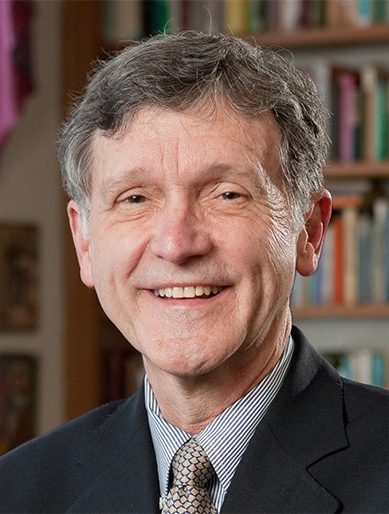In Giving Glory to God in Appalachia: Worship Practices of Six Baptist Subdenominations, the late Appalachian State University professor Howard Dargan observed:
One ceases to be a member of a local Primitive (Baptist) church by being dismissed by letter to another church, by dying, or by being “excluded.” This exclusion, often referred to in the mountains as being “churched,” is an act by which an errant member is literally expelled from fellowship. This may occur simply as a consequence of doctrinal errancy or lack of attendance and involvement, but occasionally it may come in respect to a lifestyle not acceptable to the membership.
The phrase “being churched” came to mind recently regarding the decision of First Baptist Church of Jacksonville, Fla., to require all members of that Southern Baptist congregation to sign the “First Baptist Statement on Biblical Sexuality” or be dropped from church rolls. The document, approved by the congregation, reads:
As a member of First Baptist Church, I believe that God creates people in his image as either male or female, and that this creation is a fixed matter of human biology, not individual choice. I believe marriage is instituted by God, not government, is between one man and one woman, and is the only context for sexual desire and expression.

Bill Leonard
The declaration must be signed and returned to the church by March 19, 2023, in order to retain a “secure membership.” Signatories must include the names of all persons in their household.
Failure to sign means: “Per the motion adopted by the church, you will be considered to have resigned your membership from First Baptist. But you can always join again by going through our membership process — attending the membership class, meeting with a pastor, and being voted on by the congregation.”
No doubt reapplication for membership would require affirmation of the “Biblical Sexuality” policy. Those refusing to sign the confessional statement will be dismissed from membership, “churched” as Appalachian Baptists would say.
In explaining this doctrinal affirmation required of all members, Senior Pastor Heath Lambert asserted: “To anyone watching this who disagrees with the biblical message on sexuality, I want you to know that we love you and God does too. It’s that love which drives us to share truth that may be hard for you to hear in confusing and dark times.”
While Southern Baptist Convention member churches are asked to affirm the denomination’s confession of faith (Baptist Faith and Message 2000), compelling individual church members to sign doctrinal statements on penalty of congregational dismissal seems relatively rare among SBC churches. Certain SBC-related schools — colleges, universities and seminaries — mandate faculty teach “in accordance with and not contrary to” multiple confessional documents, including the Baptist Faith and Message 2000; the Abstract of Principles 1859, a Reformed-oriented confession first used at the Southern Baptist Theological Seminary; the Chicago Statement on Biblical Inerrancy 1978, developed by 200 leaders from multiple evangelical communions; and the Danvers Statement 1988, first released by the Council for Biblical Manhood and Womanhood, affirming the biblical inerrancy of complementarian male/female roles.
This unique congregational action surely has implications inside and outside the SBC. Questions abound.
“Have members sufficiently affirmed biblical inerrancy and complementarity as the church’s required hermeneutical and familial orthodoxy, while some waver on issues of sexuality?”
First, why has this specific statement become the means for retaining or “churching” members at FBC Jacksonville? Have members sufficiently affirmed biblical inerrancy and complementarity as the church’s required hermeneutical and familial orthodoxy, while some waver on issues of sexuality?
Pastor Lambert offers “three reasons” for the requirement: A “prophetic” response in a “dark and confusing time;” a “legal” necessity to protect against court cases that might seek to challenge a biblical mandate; and a “pastoral” response necessary because “we’ve had many precious people in our church who have struggled with these issues of gender and sexuality or whose family has struggled.”
The latter category may be the heart of the matter. Those who have “struggled” must now affirm the definition of sexual orthodoxy or “be churched.”
Second, how might the congregation have actualized their assurance to LGBTQ persons that “we love you and God does too”? Might they had added a sentence committing signers to something like this: “Our love for Christ and for all persons requires us to repudiate all acts of violence against LGBTQ individuals and groups.”
That simple, loving confession could be a particularly meaningful Christian witness in an increasingly violent culture. A November 2022 story from NPR reported: LGBTQ people experience four times more interpersonal violence than non-LGBTQ people, according to UCLA’s Williams Institute.
Third, in the interest of full disclosure, might FBC Jacksonville have prefaced its “statement on biblical sexuality” with an acknowledgement that the church is closely related to the SBC, a denomination that in 2022 was forced to confront 20 years of sexual abuse perpetrated by a significant number of clergy and laity, abuse that was often ignored, dismissed or covered up by certain denominational leaders?
“Can any of us ever sign enough documents to prove we are orthodox enough?”
Fourth, the decision of First Baptist Church of Jacksonville requiring members to prove their biblical orthodoxy by signing a statement on “biblical sexuality” raises questions that go beyond that specific congregation: Once you start mandating orthodoxy (and church membership) by signature, where will it end? What will be the next non-negotiable doctrine — complementarity, biblical inerrancy, opposition to Critical Race Theory — that requires a signature under threat of being shamed and “churched”?
Can any of us ever sign enough documents to prove we are orthodox enough?
Finally, the quest for ultimate biblical orthodoxy is never easy, even for those who affirm varying degrees of biblical inerrancy. (By the way, in The Doctrine of the Bible, 1991, evangelical scholar David Dockery lists at least six types of biblical inerrancies.) Southern Baptist history illustrates that difficulty dramatically. Indeed, the denomination’s origins involved perceived biblical orthodoxy in the support of chattel slavery.
An 1841 treatise by Virginia Baptist pastor Thornton Stringfellow illustrates the point.
Titled A Brief Examination Scripture Testimony on the Institution of Slavery, it is one of many “biblical defenses” of slavery published during the Antebellum period. From start to finish, the document appeals to biblical authority as providing both the permission and mandate to keep slaves. Stringfellow wrote that the slavery question is “of such vital importance … to the peace and safety of our country… to the welfare of the church,” that Baptists in the South “shall be seen as cleaving to the Bible and taking all our decisions about this matter from its inspired pages.”
Responding to abolitionist demands for immediate slave manumission, Stringfellow declared “that Jesus Christ has not abolished slavery by a prohibitory command,” and, “has introduced no new moral principle which can work its destruction under the gospel dispensation.”
Citing the epistle to the Ephesians, he asserted: “Paul ordains by letter, subordination in the fear of God — first between wife and husband; second, child and parent; third, servant and master; all, as states or conditions, existing among the members.”
He concluded: “Instead of meditating generous things to our slaves, as a return for gospel subordination, we have to put on our armor to suppress a rebellious spirit, engendered by ‘false doctrine’ propagated by men ‘of corrupt minds, and destitute of the truth,’ who teach them that the gain of freedom to the slave is the only proof of godliness in the master.”
Thank God Stringfellow’s “biblical mandate” for slavery did not prevail.
Church history is replete with evidence that sometimes Christians have applied “biblical orthodoxy” in ways that carried them outside the gospel. Turns out that “being churched” is relatively easy; “being church” is the hard part, whether our biblical hermeneutic veers left, right or center.
Best to think on that before we sign, literally or figuratively, onto any churchly mandate.
Bill Leonard is founding dean and the James and Marilyn Dunn professor of Baptist studies and church history emeritus at Wake Forest University School of Divinity in Winston-Salem, N.C. He is the author or editor of 25 books. A native Texan, he lives in Winston-Salem with his wife, Candyce, and their daughter, Stephanie.
Related article:


